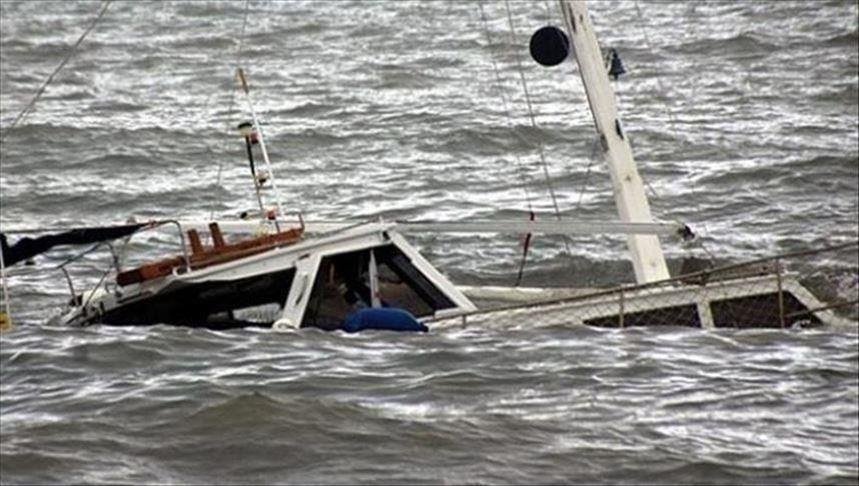Hundreds of thousands students in Nigeria hoping to continue their education to higher levels have their dreams and expectation aborted because of the increasing wave of insecurity occasioned by terrorists’ activities. The insecurity has put the Safe Schools initiative at risk.
Ogbodo Ozioma Favour in this special report writes that many students/pupils learn under the atmosphere of fear of being kidnapped, abducted or even, killed.
Just recently, the Governor of Kaduna State said over 500 schools are up for relocation to safe places. Why? Terrorists have made learning a feaful programme in many parts of the northern region of Nigeria. Take Kaduna state for example. Around the state learning is no longer conducive. So also schools are unsafe. Dreams of many kids to reach the hights in education are being cut short. Because many are droping out of school over the state of insecurity.
Earlier, the governor disclosed that an alarming numbers of schools in the state under his predecessor, Nasir el-Rufai lack fence, making the pupils/students, teachers and workers vulnerable.
In Kaduna, insecurity is rising as terrorists are unleashing horror nearly every day.
In broad day light, they kill, kidnap and abduct students enmasse. The situation has led to aborted dreams for thousands of the students. Consequently rate of school dropouts is high.
1,500 Kaduna Schools Lack Fence

Governor Sani stated expressly that over 1,500 Kaduna schools lack fence.
Governor Uba Sani, said the over 1,500 schools which do not have fences are in the eight frontline local government areas of the state.
The governor stated this while addressing stakeholders from the 23 local government areas of the state.
The governor, however, disclosed that as part of efforts to complement the government’s commitment to implementing the Safe School Initiative, prominent Kaduna-based business moguls, Alhaji Adamu Atta of Fifth Chucker and Alhaji Bukar Shettima of Barbados, are to build fences for 100 schools.
He explained that his administration is focusing on education because they believe education is the greatest enabler.
“But because of the unfortunate incident that happened in Kuriga, where about 137 children were kidnapped, we saw the situation of the school, then we embarked on the assessment of all our schools, particularly our junior secondary schools and primary schools, and the result was very pathetic, because before us today in Kaduna State, we have over 1,500 schools that need to be fenced in line with Safe School Initiative,” he said.
Sani, who also identified security as the most important area of focus for his administration, applauded the service chiefs, particularly the Chief of Defence Staff, for establishing a military base in Kachia.
The governor puts the figure of school drop out at alarming rate.
Chibok Girls Saga

Another chilling abduction of students is the incident at the Chibok School, in Borno state of Nigeria.
“They died because of this. A lot of them are still affected by trauma and, anxieties, and life is bitter and frustrating. We are asking the Nigerian Government to do their best to free all the remaining girls”. Hadiza Kwakii, a late sister’s daughter after escape cries in an interview with Aljazeera.
“Bring back our girls” continues to echo ten years after the sudden attack on school children from the age of 16 to 18 years who were kidnapped by Boko Haram from the Government Secondary School in the town of Chibok in Borno State, Nigeria this kind of attack has become recurrent in subsequent years

Importance of Safe School
Education is very fundamental as it equips learners with communication skills, literacy, and numeracy skills, it is germane for the growth and development of any nation and when it comes to education, emphasizing the importance of safety in schools is paramount. The goal is to safeguard future children from the trauma of unsafe school and a school should be a safe haven for all children and teachers.
180 Killed In 70 Attacks Between April 2014

According to the safe Children’s recent data, reportedly 1,680 school children have been kidnapped in 10 years, 180 killed in 70 attacks between April 2014 and December 2022 with an estimate of 60 school staff kidnapped and 14 killed while 25 in school.
Recently March 7th, 2024, about 286 school children were kidnapped from the government-owned schools in Kaduna State Kuriga town.

Similarly, in September 2023, 24 students were kidnapped at the Federal University of Gusau in Zamfara State with many more instances.
This portrays the uncertainty and violence in the Nigerian school system especially in Northern Nigeria.
“Unsafe schools occasioned by attacks on schools and abduction of students are repulsive, a brutal violation of schools rights of victims to education, and totally unacceptable. Their occurrence cut short the futures and dreams of the affected students” said Peter Hawkins, UNICEF Representative in Nigeria.
11, 536 Schools Were Closed Down Since December 2020 Due To Abduction And Insecurity
The uncertainty in unsafe schools has led to the increment of out-of-school children, the United Nations Emergency Funds (UNICEF) stressed that only 63% of primary school-age children attend school and the UNICEF data shows a total of 11, 536 schools were closed down since December 2020 due to abduction and insecurity issues
Insecurity and violence can lead to traumatic experiences as a result of unsafe school environment.
This portrays the need to create a safe school.
Due to a series of attacks and abductions, The Federal Government, the United Nations Special Envoy for Global Education Gordon Brown, and a coalition of Nigerian business leaders jointly inaugurated the Safe School initiative in 2014.
According to the United Nations Development Group “Safe School Initiative” entails a combination of
school-based interventions; community interventions to
protect schools; and special measures for at-risk
populations. The initiative could be implemented in
Adamawa, Borno and Yobe states, already in a declared state
of emergency, and expanded to others in the north and, as a
national initiative, to cover the entire country.
The need for a safe school environment
According to the United Nations Children Agency Nigeria office, only 43% of minimum safety standards such as perimeter fencing and guards are met in over 6,000 surveyed schools
According to the Statista recent report, Nigeria has about 9,589 public secondary schools and 17,453 private secondary schools.
Similarly in another report, Nigeria has 61,921 elementary public schools, and 55,004 elementary private public schools.
According to National Safe School Response Coordination Center (NSSRCC) only 528 schools are registered on Safe School Center, 10 years after the commencement of the initiatives.
Recently, the Kaduna Governor, Una Sani moved to relocate 359 schools from a terrorist-, infested area and merge them with other schools in safe places.
This shows the need to prioritize safe schools in Nigeria.
Security Expert Speaks
Africa Health Report (AHR) spoke to Senator Iroegbu, a Global Sentinel Security Analyst in a phone interview who stated that insecurity in schools can be addressed through a multifaceted approach.
“The issue of safety of school children is becoming a concerning trend not only because of kidnapping but the other vices like bullying and overall negligence on the part of some school management.
“For the North East in particular and as a result of the activities of Boko Haram terrorists, there have been some initiatives like the Safe Schools Initiative (SSI).
This was launched by the Nigerian government with international support with people like former British Prime Minister, Gordon Brown involved in the initiative, especially after the kidnap of Chibok Girl. So the SSI aims to improve the security and safety of schools in the NorthEast region.
It includes measures such as the deployment of security personnel, training for teachers, and the construction of safe learning environments. While things have relatively improved, there are lots of gaps even after the kidnap of Dapchi Girls four years after the Chibok incident.
Also, this Initiative after reading initial fanfare has not received enough government support and there is an absence of strategic vision, planning, and implementation hence the continued kidnapped cases not only in the North East but across the country.
“It should be noted that it would require a multi-faceted approach. The immediate measures include:
– Continue collaborating with security agencies to provide adequate protection.
– Implementing access control and surveillance systems.
– Conducting regular security assessments and drills.
– Engaging with local communities to foster information sharing.
-Providing some personal security measures
– Providing training for school staff and students on security protocols.
“However, long-term solutions involve addressing root causes of insecurity, such as poverty and inequality, through sustainable development initiatives.
Therefore, prioritizing a safe school environment is crucial for nurturing future leaders, and to do this, the government can:
– Allocate dedicated funds for school security and infrastructure development.
– Implement policies promoting inclusive education and social cohesion.
– Support teacher training and capacity building.
– Encourage community involvement in school management.
The Nigerian Military Efforts
“Regarding the Chibok girls, the only recent development on their release was the one announced by the Nigerian Army, on Thursday, saying it has handed over Lydia Simon, the rescued Chibok schoolgirl, and her three children to the Borno State government for reunification with her family.
The Theatre Commander, North-East Joint Task Force, Operation Hadin Kai, Maj. Gen. Waidi Shuaibu, who disclosed this during the handing-over ceremony at the Mailmalari Cantonment, on Thursday in Maiduguri, has also assured of continued military efforts as the search for the remaining 90 girls continues.
However, the government should in addition continue diplomatic efforts and collaborate with international and local organizations to ensure their safe return.
“Trauma and mental health challenges, especially Post-Traumatic Stress Disorder (PTSD) is something not often talked about but it is highly crucial. Apart from the initial assessment that takes some days and weeks before the rescued girls and other victims are handed over to their parents, I don’t think there are long-term measures to address these issues.
“Nevertheless, the government can alleviate the suffering and trauma of rescued girls by:
– Providing continued access to counseling, psychological support, and healthcare services.
– Offering educational and economic empowerment opportunities.
– Ensuring their reintegration into their communities is safe and dignified.
“The security situation in schools is dire, with threats from terrorism, banditry, and kidnapping. And this compounds the efforts to mitigate the growing numbers of out-of-school children, especially in the North which numbers above 10 million.
The number is staggering and you note that there are many countries with less than such a population. Therefore, a comprehensive approach to addressing these challenges is essential.
“Even though I am not an advocate of such measures just like in health, everyone should have a choice where they want to be educated or receive Medicare.
However, the light of the growing neglect of these vital institutions by the public officials such measures could be taken temporarily until they are forced to address these gaps.
Way Forward
To this end, mandating government officials’ children to attend state-owned schools could:
– Encourage investment in public education infrastructure and security.
– Foster a sense of shared responsibility among leaders.
– Promote social cohesion and equal opportunities.
“However, this measure alone may not guarantee security, as it’s crucial to address the underlying causes of insecurity and ensure inclusive, quality education for all”.



